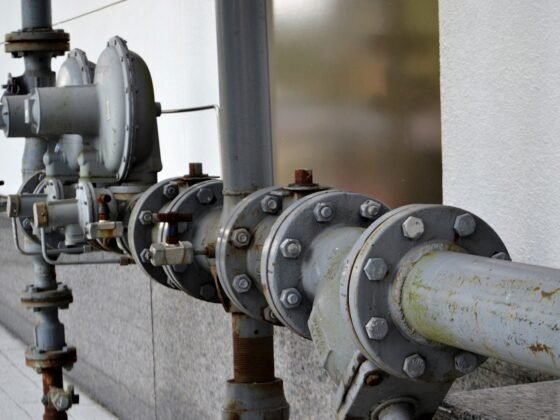Table of Contents Show
The world is in a precarious position right now, global warming and climate change have made the world rethink its stance on a lot of things, and thus everyone is looking for a sustainable future.
Considering the threat caused by fossil fuels and greenhouse gases, people are opting for a more sustainable option in heating oils.
They’re affordable, easy to use, and don’t leave a toll on the environment like natural gas or petroleum. However, most consumers tend not to trust the heating oil system because it’s relatively new, and the initial costs might seem like a bit too much.

In this article, we’re going to discuss everything you need to know about heating oils and their technicalities. That being said, let’s begin!
Read Also:
What are Heating Oils
Heating oils are a less viscous, highly distilled version of the conventional petroleum used for vehicles. It’s a mix of several hydrocarbons and Sulfur which creates it’s texture and heating properties.
However, the major difference between heating oil and diesel is that diesel must not contain sulfur less than 15 ppm, while heating oils must have Sulfur below 500ppm. Thus, it’s less viscous and flammable compared to Sulfur.
Types of Heating Oils
Heating oils can be of many types based on the amount of Sulfur or the type of hydrocarbon used in it. Some of the most commonly used ones are:
Red Diesel:
Popularly known as “Gas oil” or “35-second oil” based on its distillation process, it’s a popular oil made from diesel. This is popularly used in industries and agriculture because of its low price and high combustibility.
Kerosene:
Popularly knows as “28-second oil”, Kerosene is a lightweight, easy to burn fuel that’s not extremely flammable. It is one of the most popular Home heating oils out there.
Also, there’s a cleaner, more expensive version of Kerosene called “Kleenburn Kerosene” which is a more sustainable option with a slightly higher price tag.
How Do Heating Oil’s Work
Generally, there are two popular systems of using heating oils, the hot-water and the hot-air system.
Hot-water System:
Here the fuel is used to heat water in a large steamer made of cast iron. Afterward, the water is passed around through radiators and baseboards, keeping everything warm.
Hot-air System:
This is a more complicated but efficient approach when compared to the hot-water method. Here, the air is made hotter by putting it through a furnace and then sent through ducts. You can Click here to learn more about the best suitable heating oil for hot air systems.
This hot air eventually converts into mist and runs through the chimney.
Benefits of Using Heating Oils
Heating oils are slowly becoming more and more popular with time and rightfully so. A heating oil-based system can provide you with a plethora of benefits, that include:
Sustainability:
Heating oils are the future, and it’s important we embrace it already. Both red diesel and Kerosene are made after distillations to reduce viscosity and risk of emissions.
They’re a lot safer than the conventional fuels you use and thus pose less risk of accidents. Also, the rate of emissions from heating oils is considerably lesser than other fossil fuels.
So, you’re also playing a part in protecting the environment for the future.
Efficiency:
Efficiency defines how good or bad something is. The more efficient a fuel is, the more heat it will produce per unit. Research has shown that most house oils are 85-95% efficient.
Which means, for every 1$ worth of oil, you get 85-95 cents worth of heat. So, the wastage here is very little. Also, since you get the most out of your oil, you don’t have to spend a lot of money either.
Comfort and Quality:
If you’re investing in a heating system, you’re likely to prioritize comfort over anything. One of the most significant advantages of an oil-based heating system is that it heats up very fast.
So, you don’t have to spend a lot of time in the cold. Furthermore, heating oils can heat up to 400 degrees faster than conventional fuels.
So, you’re likely to stay warm for a lot longer than other heating methods. Therefore, to keep yourself warm without consequences, house oils are a good idea.
Affordability:
Heating oil-based systems might seem very expensive, given their requirements. However, since the oils are more efficient and affordable compared to other systems and they provide more heat than typical fuels, you can save up a lot of money from it.
Thus, over time, you can save more than 20% of what you’d require to have a natural gas-based system.
Safety:
Heating oils are non-viscous and distilled, so they don’t easily combust or burn. In order to heat your house, heating oils use a complex mechanism with furnaces and radiators to heat the oil up to a required temperature and heat your home.
So, it’s a lot safer than other conventional methods.
Precautions
Rules and Regulations:
In order to set up an oil-based heating system, you will require to take a few permissions. There are specific safety standards that need to be met to prevent accidents and health hazards.
So, we recommend that you consult the relevant authorities of your region before setting up your system.
Initial Investment:
Since oil-based systems aren’t all that popular yet; you’ll likely have to set up everything from scratch. So, you might have to invest a bit of money beforehand.
However, the investment becomes worthwhile in a few years. So, have a good idea about your budget and finances before investing.
Conclusion
Heating oils are the future, and it’s about time we embrace it. In the next few years, most houses will be opting for this system since it’s cheaper, safer, and more sustainable.
So, right now is the perfect time to join the revolution. In this article, we’ve discussed everything you need to know about heating oils. The good, the bad, and everything in between. We hope you find this article helpful.










